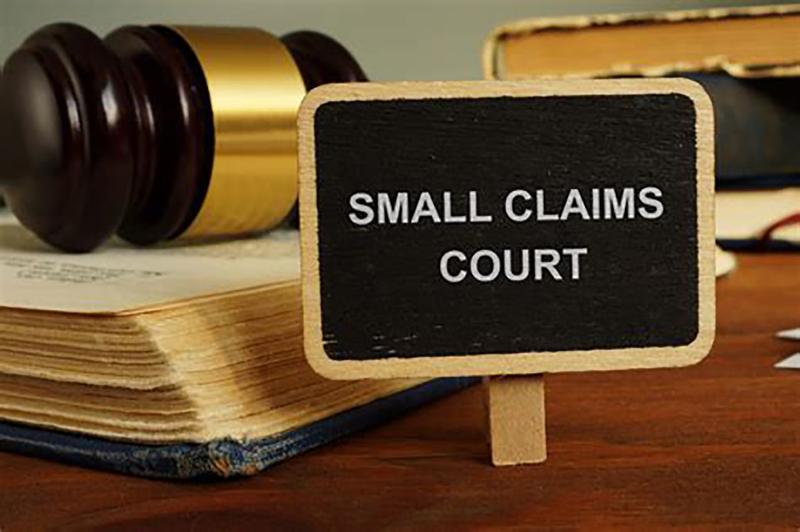
Complimentary Story
March 2024Small claims court is an accessible forum for resolving disputes involving relatively modest amounts of money. Whether it’s a landlord-tenant disagreement, a consumer rights issue, or a dispute over services rendered, small claims court offers a streamlined, user-friendly, efficient process. This article delves into the workings of small claims court, exploring its procedures, benefits, and limitations.
1). What is small claims court?
Small claims court, also known as magistrate court or small claims tribunal, operates within the judicial system to resolve disputes involving small sums of money. While the exact monetary limit varies by jurisdiction, these courts typically handle cases where the amount in controversy falls below a specified threshold. Wisconsin’s monetary limit for a small claims case is $10,000. The primary objective of small claims courts is to provide individuals and businesses with a simplified and cost-effective means of resolving disputes without the need for extensive legal representation.
2). How do you file a claim?
Initiating a case in small claims court typically begins with filing a complaint or claim form with the appropriate court. The plaintiff or person bringing the case must provide essential details such as the nature of the dispute, the amount of money sought, and any supporting documentation. Once filed, the court will schedule a hearing date, and the defendant will be served with notice of the lawsuit, allowing them an opportunity to respond.
3). How should you prepare for a hearing?
Before the hearing, both parties should gather relevant evidence, including contracts, receipts, invoices, and correspondence. While formal legal representation is generally not required in small claims court, individuals may seek advice from an attorney or legal clinic for practical guidance on presenting their case. Organizing evidence clearly and concisely is essential to present a compelling argument before the judge or magistrate.
4). What is the hearing like?
The plaintiff and defendant can present their cases before the judge or magistrate at the scheduled hearing. The proceedings are typically informal, with less stringent evidence and procedure rules than traditional courtrooms. The judge may ask questions to clarify issues and attempt to facilitate a resolution through mediation or negotiation. If no settlement is reached, the judge will decide based on the evidence presented and applicable law.
5). How do you enforce judgements?
Once the court issues a judgment, the prevailing party can enforce it to collect the awarded amount. Standard enforcement methods include wage garnishment, bank levies, and property liens. It's important to note that obtaining a judgment is only the first step, and diligent efforts may be required to secure payment from the opposing party.
Small claims court offers several advantages over traditional litigation, including:
1). Accessibility: The process is designed to be straightforward and user-friendly, allowing individuals without legal expertise to navigate the system effectively.
2). Cost-Effectiveness: The filing fees and expenses associated with small claims courts are typically lower than those of formal litigation, making it an affordable option for resolving disputes.
3). Efficiency: Cases in small claims courts are often resolved more quickly than those in higher courts, with expedited procedures and shorter wait times for hearings.
4). Informality: The relaxed atmosphere of small claims court encourages open communication and negotiation between parties, fostering the potential for amicable resolutions.
While small claims court offers many benefits, it's essential to recognize its limitations, including:
1). Monetary Limits: Small claims court is generally only suitable for disputes involving relatively small amounts of money, as defined by statutory limits.
2). Limited Remedies: The court's authority to grant relief may be restricted, with certain damages or equitable remedies unavailable in small claims proceedings.
3). No Jury Trials: Small claims court cases are typically heard and decided by a judge or magistrate, with no option for a jury trial.
4). Appeals Process: The right to appeal a decision in small claims court may be limited, and the grounds for appeal are typically more restrictive than in higher courts.
Small claims court provides a valuable forum for resolving disputes promptly and cost-effectively. By understanding small claims courts’ procedures, benefits, and limitations, individuals and businesses can effectively navigate the legal system to seek redress for their grievances. Whether recovering unpaid debts, addressing property damage, or resolving contract disputes, small claims court offers a practical solution for everyday conflicts.
McLario, Helm, Bertling & Spiegel, S.C.
N88 W16783 Main St.
Menomonee Falls, WI 53051-2890
Tel: (262) 251-4210
McLario.com



